English novelist Fenella Miller, who has many books published by trade publishers, is now self-publishing her Regency romances. Here she shares the secrets of her success as an indie author and offers inspiration for all kinds of writers.
What is the secret of your success?
There is no secret to my being successful as an indie author. Let me give you a quick resume of my career so far. I've been writing full-time for nine years and had my first two books published in 2005. I continued to write for Robert Hale, DC Thomson, Linford Romance and Musa until June 2012. My annual income from my writing, including PLR and ALCS, was around the £5,000 mark at this point.
All my published books were Regency romantic adventures, although I was writing other mainstream historical novels at the same time. I even had an agent, and got a book as far as acquisitions at Orion, but failed to make the breakthrough into one of the big publishing houses.
Then a writing friend told me about Kindle and how easy it would be for me to start putting up my back-list myself. That was the turning point. No secret – just a new opportunity of which I took advantage.
What was the single best thing you ever did?
Obviously the answer to this question is deciding to become an indie author. People criticise Amazon, but for writers like me it has been life changing. Markets have been opened all over the world and I'm steadily building a loyal and enthusiastic readership. Ebooks are always available, never go out of print, and will continue to earn money for my children and grandchildren for many years.
How do you get/stay in a creative mood?
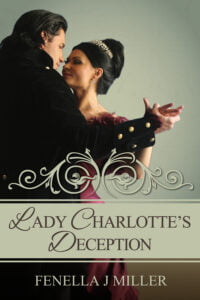 I write every day; even when I don't feel like it I sit down and squeeze out 1,000 words. It's not a case of being in a creative mood. I'm a writer, that's what I do, I can't sit around waiting for the muse to strike. I just have to get on with it. I write better first thing in the morning, but I also write in the afternoon. I always know when I've done enough as the words just stop coming.
I write every day; even when I don't feel like it I sit down and squeeze out 1,000 words. It's not a case of being in a creative mood. I'm a writer, that's what I do, I can't sit around waiting for the muse to strike. I just have to get on with it. I write better first thing in the morning, but I also write in the afternoon. I always know when I've done enough as the words just stop coming.
How do you prioritise?
I am my husband’s carer, so I write before I wake him up. He's quite happy to sit and do mathematical puzzles in his conservatory as long as he knows I'm upstairs. He likes to go out somewhere most days, but has a sleep in the afternoon so I can get back to my work then.
Writing is my joy and my work, but my family will always be my main priority. When they need me, writing has to take second place. That said, if I miss a couple of days for any reason, I make a point of doubling my output until I catch up.
What's next?
I will be able to reclaim the six books published by Musa at the end of the year, and I will then indie publish them. My plan for this year is to finish the third and final part of my World War II trilogy, Barbara’s War, and publish that in September. I have already written one new Regency and hope to have completed two more by the end of the year. I also have a fifth Regency box set to put up – these seem to sell very well. Next year I have a two-part historical novel, also World War II, to get edited and released.
Since I started publishing my own books on Amazon I have put up something every month. Six of the twenty-one books are new titles, the rest are from my long backlist.
My long-term career goal is to publish three new Regency titles and two new, mainstream historical novels every year. I have eight more backlist and then everything I publish will be fresh material.
What's the highlight of being an author – publisher for you?
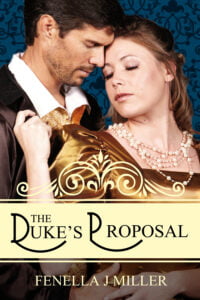 For me the best thing about being an indie author is having control over the whole process. I have my covers designed by Jane Dixon-Smith, I have four excellent beta readers and a proof/copy editor as part of my team. I can write what I want, publish when I want, and get my royalties every month.
For me the best thing about being an indie author is having control over the whole process. I have my covers designed by Jane Dixon-Smith, I have four excellent beta readers and a proof/copy editor as part of my team. I can write what I want, publish when I want, and get my royalties every month.
I am one of a growing group of indie writers who don't have bestsellers, are not media darlings, but sell thousands of copies every month. I now make more money from my writing than I did as a full-time, top of the scale, teacher.
I have everything I've ever dreamt of. I spend my time doing what I love and am getting paid more than a living wage for doing it. I still sell my books on to large print and occasionally to DC Thompson, but that's my choice. I no longer have to write to a publisher’s requirements – I write what I want and only have my readers preferences in mind.
What are your top tips for other indie authors?
 I'm fortunate in that I chose to write historical novels which are a popular category in ebooks, so select a popular category if you are able to write in any genre.
I'm fortunate in that I chose to write historical novels which are a popular category in ebooks, so select a popular category if you are able to write in any genre.- Although literary fiction is much harder to sell and takes longer to build an audience, I'd always recommend writing the book you want to write, rather than writing something you're not comfortable with.
- It's essential to have your book edited, proofread, and professionally covered.
- Don't be in too much of a hurry to publish your book. I think I've been so successful because I had dozens of books already written. When a reader discovers an author, they want more of the same, and if they have to wait a year for the next book, they might well have moved on to someone else and forgotten about you. My advice would be to have at least three books, edited, proofread and with a professional cover, ready to go before you put the first one up. Then you can release one every couple of months and hopefully have written the next by the time the third one is published.
- Don't become obsessed with marketing and promotion. I'm sure other writers would disagree with me, but in my opinion if your books are good, and there are plenty of them, they will sell with or without media intervention.
Thank you for inviting me to appear on your successful indie authors page. I am honoured to be in such exalted company. I think my being here proves you don't have to be a bestseller to be successful as an indie author.
Share this post to inspire other self-published author friends! Here's our suggested tweet to make it easy:
“Regency novelist Fenella Miller shares her top tips for indie authors: https://selfpublishingadvice.org/how-i-do-it-fenella-millers-top-tips-for-self-published-authors/ via @fenellawriter & @IndieAuthorAlli”

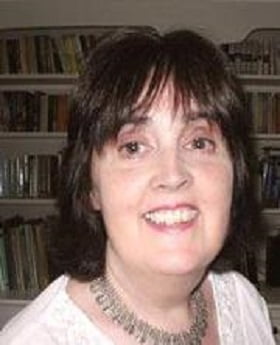
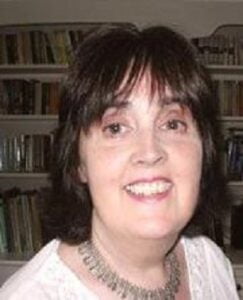
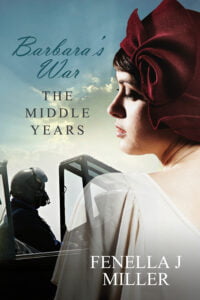



[…] published chimes with these findings, from my own experience to a recent post in an ALLi forum by historical romance writer Fenella Miller, urging a young writer not to hastily accept a deal: “I would not go with a trad publisher again […]
Thanks, Fenella for sharing your experiences and tips on indie publishing; you are a prolific writer and an inspiration that ‘…you don’t have to be a bestseller to be successful as an indie author’. Ultimately the more books you publish the more royalties you receive, not to mention that when your readers enjoy the first book they are then waiting for the next. I didn’t have a string of books ready when I published my debut novel last year, but I am experiencing readers asking what happens in the next book in the series. It eases the pressure if the next book is also written and I can see the advantages, but sometimes it might not be possible to wait for practical or financial reasons. The beauty of indie publishing is that the author has the power to choose.
It is interesting that Fenella recommends holding back on self-publishing until you have three books ready to go. This is what I did too, although it wasn’t by design. I had three with a fourth in the offing. My first release was a double release on Christmas day 2012 and I had intended to space the other two out evenly so that it gave the false impression that I was producing a book a year. I released my third book almost a year after the first two, but changed my policy and released the fourth only five month later. I would say that this will be a very expensive way of doing things and will require considerable up-front investment. I do not begin to see any return until I have hand-sold a minimum of 600 copies of each book. (For my first three books, structural edits, copy edits and cover design came to £1200, so actually I need to sell more of them, for my latest book I did not have a structural edit.) I am not in the position that my income from writing replaces a full-time salary and I am not sure that, based on the facts now available to me, it ever will. i continue to work one day a week and am in the fortunate position that this work is well paid. I also have no mortgage and no dependents, which is the only reason I can do this at all. What I do see is that when readers discover me, they come back and read every book I have written. It’s just that I need an awful lot more readers. Although Fenella advises not to become obsessed with marketing and promotion, I’d like to know what she did do. (Did do? Did I write that?)